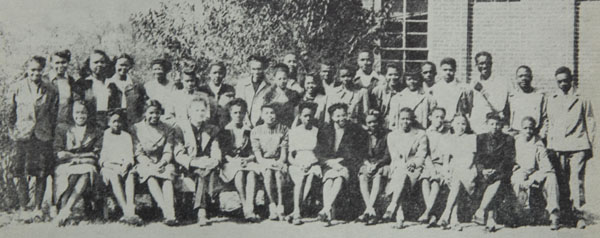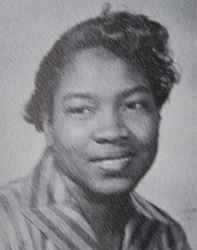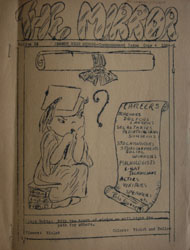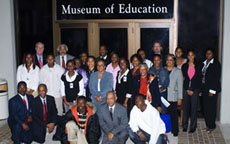

Principal W. D. Gay and School Planning |
||||||||||||
Drewry faculty maintained records of pupil growth (a “criterion-referenced” orientation) with an emphasis upon understanding the meaning of democracy through student participation. The curricula was college preparatory with “academically oriented” vocational courses intended to provide “opportunities for the acquiring of information, interest and skills which will enable pupils to live effectively; now and throughout their lives” (Drewry High School, 1943, p. 1). A dimension of the teachers’ experimental work was maintaining records of “school growth”: Drewry kept “a running log of its [i.e., the school’s] growth, record of modifications made from year to year in courses including social studies, science and mathematics. The records indicate changes made in content, in organization and in methods used in these courses. General school purposes are being examined by the faculty in an effort to determine the extent to which these or other purposes actually function in the school” (Gay, ca. 1943, p. 9). |
||||||||||||
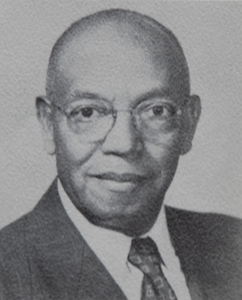 W. D. Gay, principal, received an M.A. at Teachers College with further study at Ohio State University and the University of Chicago. |
Drewry faculty maintained records of pupil growth (a “criterion-referenced” orientation) with an emphasis upon understanding the meaning of democracy through student participation. The curricula was college preparatory with “academically oriented” vocational courses intended to provide “opportunities for the acquiring of information, interest and skills which will enable pupils to live effectively; now and throughout their lives” (Drewry High School, 1943, p. 1). A dimension of the teachers’ experimental work was maintaining records of “school growth”: Drewry kept “a running log of its [i.e., the school’s] growth, record of modifications made from year to year in courses including social studies, science and mathematics. The records indicate changes made in content, in organization and in methods used in these courses. General school purposes are being examined by the faculty in an effort to determine the extent to which these or other purposes actually function in the school” (Gay, ca. 1943, p. 9). |
|||||||||||
Cooperative Purposes at Drewry The objectives of the Drewry Practice High School, Talladega, Alabama toward which the staff of our school is working: |
||||||||||||
|
||||||||||||
To foster a sense of cooperation and as a form of teacher-pupil planning, Drewry High School faculty initiated Youth Day: “Youth Day was suggested by a tenth grade student. One day Mrs. Harris requested her English class to write short essays and among the suggested topics was ‘An Experience I Should Like To See Tried in My School.’ Henrietta Thomas took as her topic ‘Youth Day—An Experiment in Practical Democracy.’ This topic interested the faculty to such an extent that they agreed to let the students try this experiment. The students greeted the approval of the faculty with enthusiasm. New teachers, together with a new principal and secretary were elected; and on March 6th, the new faculty [the students] assumed its duties. Those who were present at Drewry on Youth Day will agree that the experiment was conducted successfully. Our new faculty had an entirely new and different experience and plunged whole-heartedly into its tasks. It gave them an opportunity to manifest qualities of leadership and demonstrated their ability to shoulder responsibility” (Drewry Mirror, 1947, p. 1). |
||||||||||||

an institutional member of the International Coalition of Sites of Conscience
curator@museumofeducation.info

